Japanese TV series My Family Story: A Light Comedy with Serious Topics.
In the winter Japanese TV series in 2021, The Story of My Family, written by Kuro Miyato, was not the highest in the ratings (not as good as The Kingdom of Heaven and Hell and Watching Doctors Face the Face 2). However, its score on Douban is not low (8.8). Some people say that Kuro Miyato’s works are "applauding and not making a hit", but it is probably not groundless.
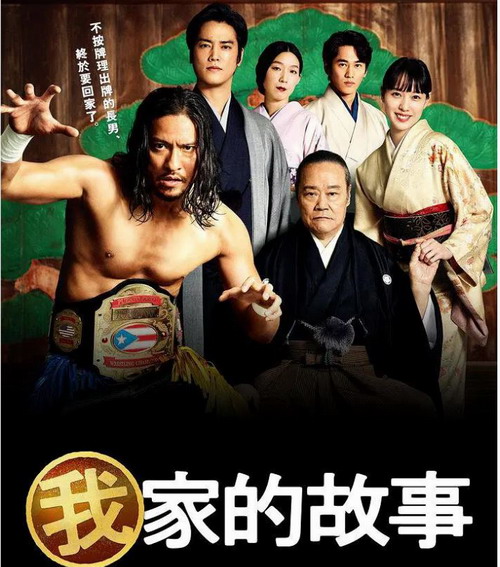
Poster of My Family Story
What is the story of My Family? On the surface, The Story of My Family, like most of Kuro Miyato’s works, has the style of light comedy. It is worth mentioning that Tomoya Nagase, Toshiyuki Nishida, Toda Erika and others, the main characters of TV series, are also frequent visitors in Kuro Miyato’s works.
The play is full of casual jokes. When the protagonist Guanshan Shouyi (Tomoya Nagase) was asked by his family to scan the code of his mobile phone to join the chat group, he found a flip phone, which attracted the anger of the other party-"You should buy a smart phone first!"
Guanshan Shouyi’s father, Guanshan Shousaburo (Toshiyuki Nishida), is a leading figure in the traditional Japanese drama "Nenglo" and is called "the national treasure of the world". Originally, Shouyi Guanshan, the eldest son, should inherit the family business and become the "28th Guanshan Liuzong Family", but out of rebellion against his father, Shouyi left home and became an active professional wrestler in the name of "Blizzard Shouyi", and he broke off contact with his family for 25 years. Shouyi hurried home after receiving the news that his father was critically ill.
Although Kanyama Shousaburo was miraculously saved, he announced that he would marry a young female nursing worker, Yoshida Sakura (Toda Erika), leaving her all her inheritance, which stunned his family and plunged this family with a high social status into chaos.
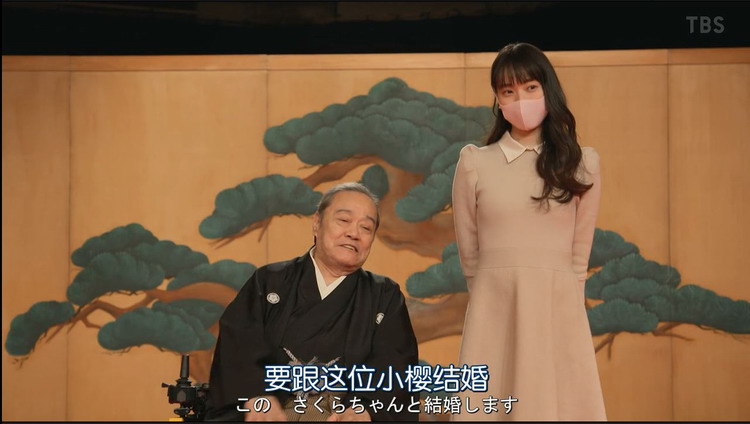
The yellow love of Guanshan Shousaburo
Kuro Miyato’s works usually show the lives of little people, and will not make the audience feel distant from them. When the audience is watching a play, it is easy to get into the plot, and they feel that those cute little people always have their own shadows. Guan Shan Shouyi in My Family Story is an ordinary man caught in a "middle-aged crisis". His career has long passed its peak, and he can only play in small competitions. His wife divorced because she could not stand the professional "murderous" of wrestlers at home. Because he felt that his wrestling career had come to an end, he decided to retire and go home to help take care of his father, who, according to the doctor, had only the second half of his life left, and to study "Nengju" again. He temporarily suspended his work as a wrestler, so that he was so short of money that he could not even get his son’s support …
As for the nurse, Yoshida Sakura, she is a thorough nobody. She lost her father when she was a child and her mother remarried many times, so she became very sensitive to money. She did her best to take care of the seriously ill elderly, which in turn won the favor of the other party, and finally divided the huge inheritance in her will. This is called "post-wife business" in Japan, and it is not a glorious identity. However, Yoshida Sakura in "My Family Story" seems to be quite comfortable with this: the old man has extended his life because of his dedicated care and happy mood, so it is only natural that he should be rewarded-he is more entitled to the inheritance than his relatives who are indifferent to the old man.
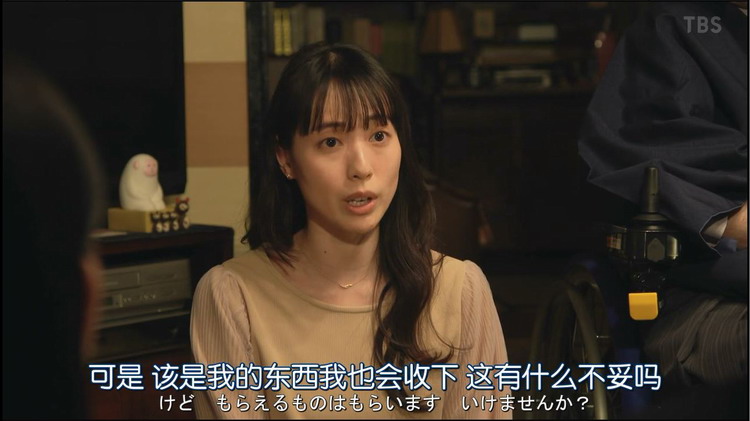
Confessions of Yoshida Sakura
Although there is a distinct commodity logic of "equivalent exchange" here, it also raises an intriguing question to the society. Can the emotional needs of the elderly be quantified by money? In The Story of My Family, the "dream" has long since disappeared without a trace-even the seemingly "evil woman" set up Zhitian Sakura, whose life goal is nothing but food and clothing. On the contrary, the disillusionment that pervades daily life can be seen everywhere in this TV series. Guanshan Shousaburo is a prominent figure. However, the TV series does not focus on his glorious past. The audience only saw a strict father who was too harsh on his son and never talked, let alone praised him. But after he became seriously ill in his later years, he was even less of a "Gao Daquan". According to the lines in the play, Guanshan Shousaburo "is no longer his original father, but a dead old man".
The more powerful people are, the more they want to maintain their dignity and are unwilling to "serve the old". Unfortunately, aging is not caused by people. Guanshan Shousaburo, played by 74-year-old Toshiyuki Nishida, is old everywhere. He has been unable to walk and can only sit in a wheelchair; Although I remember the long lines of "Nengju", I can’t say the names of animals and vegetables (this is a precursor to Alzheimer’s disease) …
This old man, who can’t take care of himself, not only fell into a dispute of "erotic love", but also confessed his early love affair to his children at the last stage of his life. He not only admitted that his adopted son in the family was his own flesh and blood under the "romantic debt", but also said goodbye to his former lovers one by one in the last "family trip", and even made a priceless (1 million yen) drama.
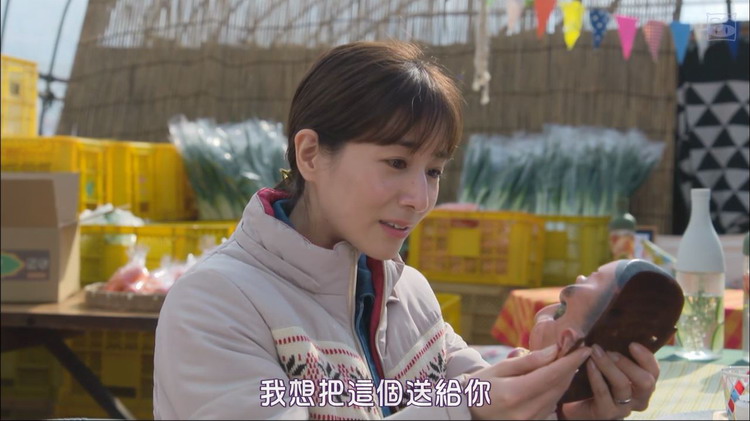
Send an expensive mask to an old lover.
If we say that the discussion on caring for the elderly is a heavy narrative thread in My Family’s Story (although it has a comedy expression); Another hidden narrative line seems a lot easier, which is the subtle existence of "Nengju" in contemporary society.
As a kind of classical art, "energy drama" can be described as "strong outside and hollow inside". Guanshan Shousaburo claims to have 10,000 disciples, but there are only a dozen real disciples left. Compared with pop music, "energy drama" has long been neglected. On the way of family travel, the mountain watchers met a third-rate ballad group "Runze" (alluding to the "pure and fierce" combination in reality). At first, Guanshan Shouyi intended to challenge him with the performance of "Nengju". After witnessing the latter’s performance, not only the women of Guanshan family became fans of "Runze", but also Guanshan Shouyi realized that the popularity of "Nengju" could not be compared with it, so she voluntarily gave up …
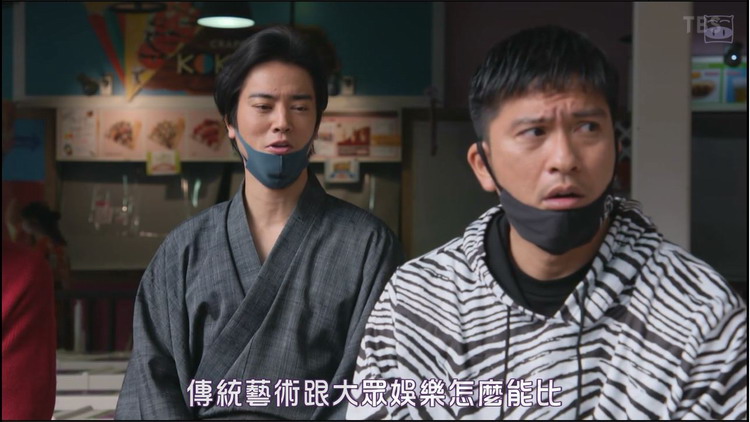
Being able to play is inferior to being ashamed.
Here, it seems that the audience can also see Kuro Miyato’s intention of combining classical traditional art with modern trend culture to attract audiences of different ages. There is another kind of classical art ("drop words") in his early works Tiger and Dragon and the recent Wei Tuo Sky. Needless to say, the morning drama "The Sea Girl", which was a smash hit, suddenly made the "Sea Girl of the North" with a long history and about to die a tourist attraction. Whether The Story of My Family can play the card of "Can Play" seems to have become a serious suspense …
[Specially published by Shanghai Literature and Art Review Special Fund]